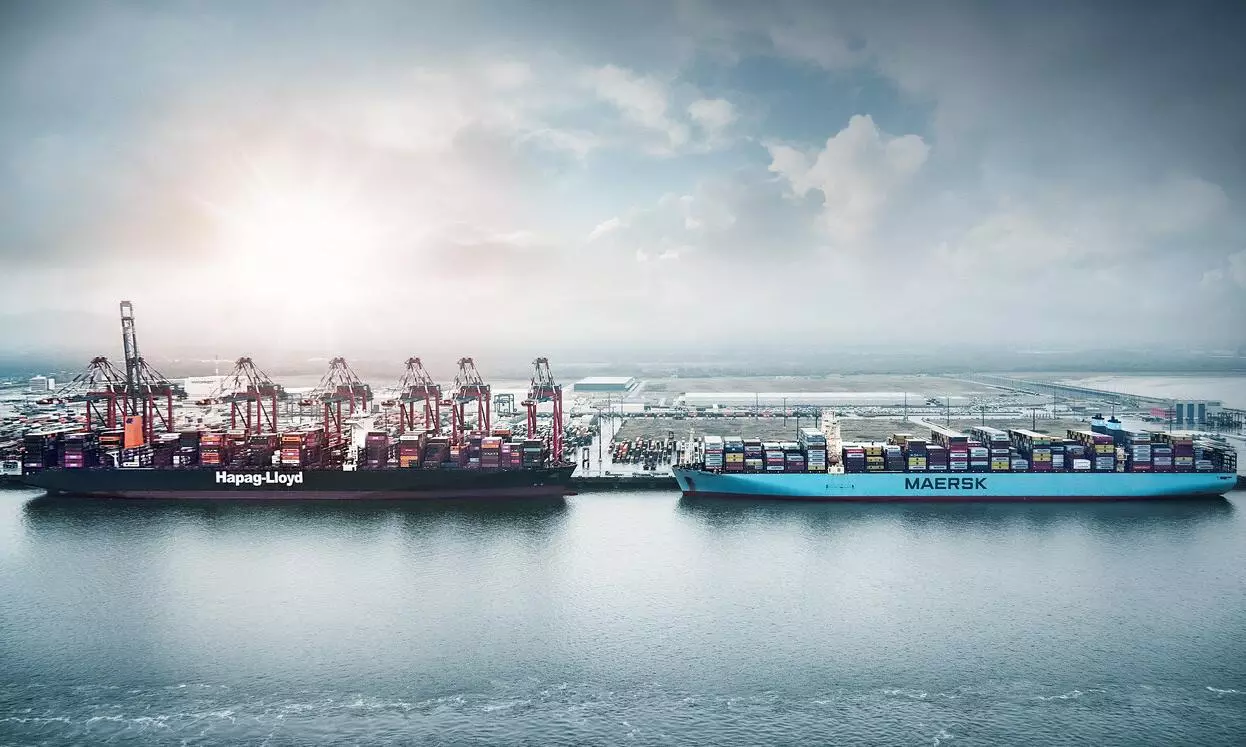
Gemini Cooperation to divert two US-flagged vessels from China
COPENHAGEN : Two container ships operated by Maersk and Hapag-Lloyd as part of the Gemini Cooperation on a transpacific service will no longer call Ningbo as Chinese port fees for US-flagged ships come into force.
A Maersk customer advisory said it was implementing changes to its TP7 Transpacific services.
The US-flag Potomac Express operated by Hapag-Lloyd will no longer be calling the Port of Ningbo and instead call in South Korea before heading back across the Pacific. The Potomac Express will discharge Ningbo cargo in Busan where the cargo will be loaded onto other ships in the Maersk network, while Ningbo exports to the US will be loaded on the Maersk Luz and connect to the Potomac Express in Kwangyang on 24 October.
For the US-flag Maersk Kinloss similarly Maersk said it would no longer call Ningbo with it discharging cargo for the Chinese port at a South Korean port and onwards to Ningbo via its network. “ Exports from or via Ningbo to the United States will be loaded on a shuttle, name to be provided, and tranship in South Korea,” Maersk said.
China only announced its “Special Port Fee” for US owned, operated, and flagged vessels on 10 October and it came into force just four days later on 14 October. This meant that US-flagged vessels such as the Potomac Express and the Maersk Kinloss were already bound for China from the US when the fees were both announced and came into force. It left Maersk with two choices – pay an unexpected RMB400 ($56) per net tonnage on additional port fee on each vessel for calling Ningbo or drop calling in China and divert Ningbo cargo onto non-US-flagged vessels in a third country, in this case South Korea.
The US-flag Potomac Express is managed by Marine Transport Management in Jacksonville, while Maersk Kinloss is part of the fleet of the Danish company’s US subsidiary Maersk Line Ltd, according to database Equasis.
Longer term Maersk said, “We will be making changes to the TP7 rotation to make sure your supply chains continue to run as smoothly as possible, if you are utilising this service.
“We will ensure to inform you of further changes, temporary or long-term, to this service, with as much notice as possible.”
China’s Special Port Fee on US ships is in retaliation for the USTR 301 investigation fees on Chinese owned, operated and built vessels calling US ports that also came into force on 14 October.
Source : Seatrade Maritime

